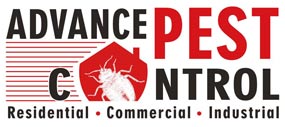Raccoon Control
Raccoon Control Langley
Deceptively fluffy and furry creatures, raccoons can wreak havoc in your homes if left unchecked. It is a native animal to North America and found throughout the United States. They are also present in Canada, Mexico, and parts of South America.
A raccoon is identifiable by its characteristic mask of black fur around its eyes surrounded by white fur. They are nocturnal animals and are generally solitary creatures except for mothers with young. The female generally gives birth to a litter of 3-6 babies which start to hunt after around 70 days. It is an omnivore and prefers water animals, though it also eats fruits, nuts, berries, and even dry pet food.
Why are Raccoons dangerous to your home and family?
The name raccoon itself means “Animal which scratches with its hands.” These wild creatures adapt well in any scenario. As the natural habitats of raccoons are on the decline, they have adapted themselves to survive well in an urban environment. They find it comfortable to build their nests in attics, chimneys, crawl spaces, roofs, and vents. A female raccoon can tear apart air-ducts, create large holes in walls, rip shingles off your roof, chew on wires or claw ventilators in their search for the perfect nesting place.
Biohazard Concerns
Once a raccoon has built its den or nest, it will start to urinate and defecate in that area. This results in a foul smell which permeates your home and makes breathing difficult. There are multiple parasites and bacteria released from its excrements such as
- Salmonella – Symptoms include diarrhea, fever, chills, and abdominal pain.
- Roundworm – exposure symptoms include nausea, skin irritations, fatigue, inattention, loss of coordination and muscle control, liver enlargement, blindness, and
- Leptospirosis – from fever and headache to kidney or liver failure
- Giardiasis – gastrointestinal symptoms
- Rabies – fever, headache, excess salivation, muscle spasms, paralysis, and mental confusion. –
Detecting Raccoons
- Visual Identification
- Large holes
- The sound of scratching or gnawing at dawn or dust
- Excrements
Steps to take if there is a raccoon in your home
If you sight a Raccoon at your home, do not corner it. A raccoon can be quite aggressive, and it is best to call a professional. Place your children and\or pets in a safe room and call us. With years of experience, we know just how to trap the animal without harming it. A raccoon comes inside a home to build its nest, and there might be baby raccoons in your home. If missed, these babies can die of hunger. Bacteria and other harmful parasites may fester on the decaying bodies which can be extremely dangerous.
Trapping and Control
We have a good idea of where the raccoon generally builds its nest which is mostly an attic or a crawl space. We search your house thoroughly and flush out the baby raccoons. It is easier to use the baby raccoons as live bait to trap the mother in a cage. We also use food to lure the adult raccoon and search for the babies. We are meticulous about using cages and snare poles which do not harm the animal.
We also locate the point of entry and seal it effectively to avoid a repetition of the scenario. As a professional agency, Advance Pest Control also used a raccoon eviction fluid which will intimidate the mother to pick up its young and leave for a place outside your home.
Decontamination
- Thorough internal and external inspection of the house to identify, repair and block entry points
- Removal of excrements
- Use a fumigated antibacterial agent to completely disinfect the house from any bacteria or spores left behind by the raccoons
We also suggest replacing soiled insulation, wires or any other materials damaged by the raccoon for thorough decontamination of your home.
It is very important to understand that raccoons are carriers of many diseases and touching them or their excrements can also cause fatal diseases. It is important to engage a professional agency as trapping by non-licensed home-owners is illegal. Classified as a wild animal, using poison to kill a raccoon is punishable by law. Only registered trappers with a valid trapping license may trap raccoons. Please contact Advance Pest Control as soon as you know there is a raccoon in your house. We will respond immediately and ensure a save eviction with thorough decontamination.
